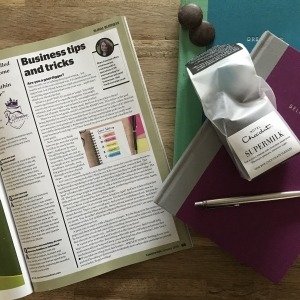 Do you set New Year’s Resolutions for yourself? Do you set New Year’s Resolutions for your equestrian business? See, I’m not 100% sold on New Year’s Resolutions. The idea is good. You’re looking to improve yourself in one way or another, leaving the bad bits in the previous year. And I get that. But if you slip up, you can quickly feel deflated. And then you throw in the towel. And then you realise it’s the 2nd January. And you reach for the chocolate and the Prosecco. Am I right? Now, let’s reframe this. What if you switched your New Year’s Resolutions into goals. Would that help? Let me explain my thinking on this…
Do you set New Year’s Resolutions for yourself? Do you set New Year’s Resolutions for your equestrian business? See, I’m not 100% sold on New Year’s Resolutions. The idea is good. You’re looking to improve yourself in one way or another, leaving the bad bits in the previous year. And I get that. But if you slip up, you can quickly feel deflated. And then you throw in the towel. And then you realise it’s the 2nd January. And you reach for the chocolate and the Prosecco. Am I right? Now, let’s reframe this. What if you switched your New Year’s Resolutions into goals. Would that help? Let me explain my thinking on this…
What’s a New Year’s Resolution and can you set New Year’s Resolutions for your equestrian business?
A New Year’s Resolution is something that usually says you’ll stop or do more of something. Maybe you want to stop eating so much chocolate? Go on a diet? Stop drinking? A lot of people’s New Year’s Resolutions can feel a little negative and a little lacking. So no more chocolate. Less food. No fizz. Yay. All the fun of Christmas and now nothing. Now, I’m not saying you should continue to eat your body weight in chocolate each day, but reframing might help. And one way to reframe would be to goal set. And this could work very well for your equestrian business too…
What’s goal setting?
I recently wrote an article about goal setting for rural and equestrian businesses for NFU’s Countryside Magazine… because as the year draws to a close, it’s a subject that keeps coming up. In truth, we should be regularly goal setting to help keep us on track. A mixture of long term and short term goals, and a plan to help us achieve them, makes it a lot more likely that we will get there (there have been various studies that prove this, have a Google). Another thing I personally like about goal setting is that you’re often looking to add and improve rather than take away. So, thinking of people, maybe a goal would be to get fitter. Thinking of an equestrian business, maybe it’s to launch a new website. But this is not where goal setting ends. Oh no.
So how do you goal set?
People have a lot of different ways of setting goals. Some have whiteboards, some planners, some notebooks… what is a universally acknowledged ‘thing’ is that writing your goals down matters. A lot. But there’s more to it than that. Again, there are a few ways to goal set but I’m going to talk about the SMART way… because it’s simple and makes a whole lot of sense. And it applies to businesses and individuals, as I hope to show in the examples below. So… ready to get SMART?
S stands for Specific.
So if you say you want to get fitter, be specific. You want to be able to jog 5km or you want to swim a mile, for example. With your equestrian business, if you’re looking to create a new website, that’s quite specific, but if you want to increase turnover, put in a number.
M is for Measurable.
I think this links well to being specific. If you say you want to increase your turnover by X, you will be able to measure your success against this specific number. Equally, if you want to be able to jog 5km, you’ll know how close you are and can measure your progress because you have that number in mind.
A is for Achievable
Setting goals that are not achievable this round will just leave you feeling really deflated. If you want to increase your turnover by 600%, but you usually increase by 10%, this is going to be one hell of an ask. If you decide you’d like to start jogging, aiming at a marathon is a big ask on the first round… it could be a longer term goal, but short term it could leave you feeling pretty ‘meh’ about things.
R is for Realistic
This can be realistic in many ways. Everyone has pressures and must-dos. If you have children or horses, for example, your time is not always your own, so whereas you might like to train for your 5km goal every day, the chances are that that might not be realistic. And this will leave you feeling horribly deflated too. Same as for your equestrian business. Realistic doesn’t mean you’re not reaching for the stars. It means you’re looking at your available resources and setting achievable goals based on these. This will mean there’s a much greater chance of success too, which will spur you on for more success.
T is for Timely
Have an end date in mind… and this is where long and short terms goals can come in. You might want to be able to jog 5km in three months (let’s say), and from here you can work out your training programme in order to do this. You can measure your success against your mini goals inside your big goal and you know what you’re aiming at. And this means you have a proper goal. Saying you want to jog 5km in one go is a great goal, but what will keep you focussed if you don’t say when you want to do this by? The same with your equestrian business. Say you want to get your new website up and running in six months time, then you can plan what you need to do in each of the months leading up to this, which makes the chance of the new project being delivered on deadline much more likely. The same with your turnover. Maybe you want to increase by x in six months? So you can work out how much extra revenue you need to generate a day/week/month in order to achieve this.
*I should add that some of these letters and their meaning differs depending on which SMART goal setting idea you look at. Sometimes you’ll see R standing for relevant, for example. Just pick which works for you!*
So should you abandon New Year’s Resolutions in favour of goals?
I’m going to say yes. I know, controversial. Let’s be honest, you can do EXACTLY WHAT YOU LIKE, it’s your life. If a New Year’s Resolution works for you as a person and your business, then go for it. If not, maybe give goal setting a go? The other great thing about goal setting is it’s never too late or early to start. New Year’s Resolutions seem somewhat tied to the 1st January… and if/when these don’t go well, you have until next January to wait, which feels like a lot of wasted days to me?







Trackbacks & Pingbacks
[…] they are anything like mine from previous years, last all of about 2 days. However, after reading this blog post of Rhea Freeman’s, and taking part in the last Small and Supercharged VIP group challenge, I […]
Leave a Reply
Want to join the discussion?Feel free to contribute!